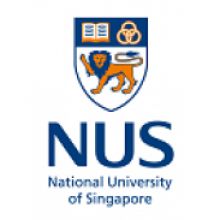The advent of massive open online courses has created a world of “haves and have-nots” in terms of disciplines that can adapt easily to the format and those that cannot, according to new research.
In his paper “The Online Future(s) of Teaching Japanese Popular Culture”, Chris McMorran, senior lecturer in the department of Japanese studies at the National University of Singapore, argues that while the Mooc is “democratising education”, some fields face significant obstacles in bringing courses online.
Dr McMorran suggests that fields that seem perfect for Moocs, because they can make use of “exciting” visual and audio media such as clips from films and television shows as well as music videos, are hindered by having to “navigate the confusing waters of copyright”.
He told Times Higher Education that this could prevent some subjects expanding their popularity and, in some cases, impede academics’ career progression.
“I toyed with the idea of making one, [but] then I thought it would be quite difficult because of this issue of copyright,” he said. “Not only would there be ‘haves’ and ‘have-nots’ within institutions [who might not be able to resource Moocs], but [beyond that] within any given institution there would be certain fields that could be turned into Moocs more easily, stuff that could be developed more easily than others.
“Some people I know have got promoted quite quickly because of their ability to take advantage of this technology and this new teaching style. [But] there’ll be a whole field of scholars who cannot [do so] because of the nature of what they teach.”
He added that if “participation in this revolution” was being pushed by senior management, “not being able to participate will look bad for that scholar”.
The paper highlights the fact that the original business model for Moocs was developed with the various fields of science, technology, engineering and mathematics in mind.
“Existing online technologies enable any course to reach millions of learners; however, it is no wonder that the first and most common Moocs have been in STEM fields,” it states. “Particularly at the introductory level, such courses do not require major adjustments each year. Students can simply watch a series of video lectures and do online problem sets that scaffold their learning of content and skills.”
Consequently, Dr McMorran believes, suggesting that all Moocs can be adapted to that model is short-sighted.
“To extrapolate and say that all Moocs can be designed in the same way, serve the same kinds of needs, doesn’t acknowledge that there’s such a diversity of teaching styles and methods,” he said.
“The ones that rely on copyright material aren’t built for this [model]. Moocs were not designed to help those.”
These issues were not restricted to fields where media use is commonplace, such as film studies, but would affect the wider humanities and social sciences as well, he said.
“As a geographer, I can continue to do my job without doing a Mooc; but of course if I did a Mooc and I could suddenly get 30-40,000 students around the world interested in the topic, it would look good for Japanese studies,” he said.






